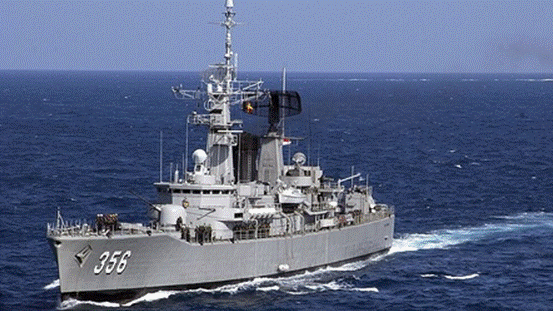JAKARTA – In a move that has raised eyebrows in Western capitals, Indonesia and Russia conducted their first-ever joint naval drills this week, marking a significant development in the relationship between the two nations. The naval exercises, though relatively small in scale, signal a shift in Indonesia’s foreign policy under newly-elected President Prabowo Subianto. The drills also come at a time when many countries, particularly in the West, are imposing economic and diplomatic pressure on Russia due to its invasion of Ukraine.
Despite global sanctions and widespread condemnation of Russia’s actions in Ukraine, President Prabowo has charted a course of non-alignment, seeking to strengthen ties with various global powers, including Moscow. According to Indonesian political analysts, the drills represent a broader strategy by Prabowo’s administration to engage with multiple international actors, regardless of their alignment in the ongoing geopolitical conflicts. This stance highlights Indonesia’s traditional position of neutrality, which has been a cornerstone of its foreign policy for decades.
A Strategic Shift Towards Moscow
The joint military exercise with Russia is seen as a clear pivot towards deeper bilateral cooperation, with both nations benefiting from strengthened defense ties. For Russia, the drills provide an opportunity to solidify its presence in Southeast Asia, a region of growing importance in the context of shifting global power dynamics. For Indonesia, the cooperation with Moscow offers military expertise and potential economic benefits, including defense technology and energy partnerships, at a time when many Western countries have distanced themselves from Russia.
“President Prabowo has articulated a desire to elevate Indonesia’s global standing by engaging with powers beyond traditional Western alliances,” said Dr. Muhammad Faisal, a political expert at the University of Indonesia. “This includes Russia, despite the international backlash following the Ukraine invasion.”
Indonesia’s Neutrality Amid Western Pressure
President Prabowo, a former general and long-time figure in Indonesian politics, has been increasingly vocal in his support for Indonesia’s independent foreign policy. He has also pursued a closer relationship with China, with recent military exercises between the two countries further complicating the geopolitical landscape. These moves are seen as part of Prabowo’s broader agenda to diversify Indonesia’s foreign relationships and reduce dependency on any single power bloc.
Balancing Relations with China and the West
While the Russia drills have raised concerns in Washington and Brussels, Indonesia’s ties with China may present an even more delicate balancing act for Prabowo. Indonesia recently resumed military exercises with China, even as Beijing’s assertiveness in the South China Sea continues to be a point of tension in the region. Jakarta has called for dialogue and peaceful resolutions to territorial disputes, but its closer military relationship with China and now Russia could strain its ties with the United States and its allies in the Indo-Pacific region.
Analysts argue that Indonesia’s foreign policy under Prabowo is characterized by pragmatism rather than ideological alignment. “Indonesia is not taking sides in the Ukraine war, and that’s part of its broader strategy to maintain strategic autonomy. The West may be uncomfortable with this, but Indonesia is seeking to carve out its own space on the world stage,” said Joko Santoso, a defense analyst at the Indonesian Institute of Strategic Studies.
### **Impact on Regional Security and Global Diplomacy**
The naval exercises have significant implications for regional security. Southeast Asia, strategically located along vital global trade routes, has become an increasingly competitive area for influence between the U.S., China, and Russia. Indonesia’s independent approach could embolden other nations in the region to pursue similar paths, potentially undermining Western efforts to isolate Russia diplomatically.
In Washington, officials are closely monitoring Indonesia’s foreign policy trajectory, particularly its military engagements with both China and Russia. While the U.S. maintains a strong defense relationship with Indonesia, especially in counterterrorism and maritime security, the country’s growing ties with Russia and China may require Washington to rethink its approach to the region. (zai)

